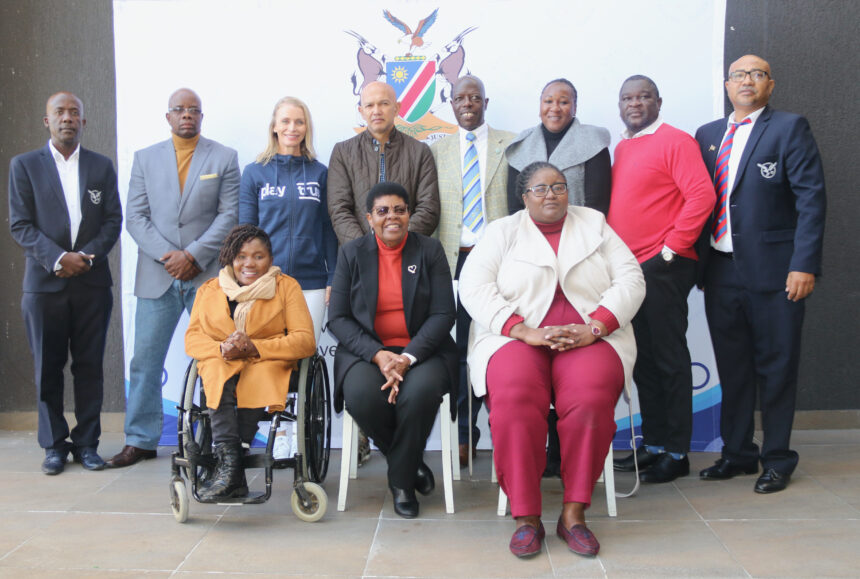Maqonda Ndlovu
The Minister of Sport, Youth and National Service (MSYNS) Agnes Tjongarero officially opened a consultative workshop on the Development of Legislation Framework for Anti–Doping in Namibia.
Speaking at the event, Tjongarero said establishing the National Anti-Doping Organisation (NADO) body will be a daunting task, hence the need to collaborate with institutions like World Anti-Doping Agency (WADA) Africa, Regional Anti-Doping Organisation (RADO) and South African Institute for Drug-Free Sport (SAIDS).
“As we embark on this journey today, it is also important to remember that the fight against anti-doping in Namibia, has been around for a while. The Namibia Sport Act of 2003, recognises the importance of anti–doping by authorising the Namibia Sports Commission to agree with any person, body or institution, whether inside or outside Namibia, to perform doping control tests or analyse any substance for any such test,” Tjongarero explained.
She added that as Namibia moves forward to establish an anti-doping institution to fight against doping in sports, the envisaged institution will be independent in its operations, with government cooperation being essential.
The minister said the International Olympic Committee (IOC) states that in the absence of an established anti–doping agency, the committee is responsible for overseeing anti–doping activities in that respective country.
“The Namibian government through this ministry, has already indicated its readiness and commitment to the envisaged institution, by seconding a staff member to the envisaged institution,” she explained.
She noted that major steps have been taken as evidenced by the presence of various international role players in the fight against anti–doping, which indicates Namibia’s readiness to learn from the best practices elsewhere.
Speaking at the event, Gaby Ahrens, the chairperson of the African National Olympic Committees Association, Athletes’ Commission and vice chairperson of WADA’s Athletes Council said having more than one organisation responsible for delivering anti-doping programmes in a country can be very confusing.
“There should be a principled decision of separating responsibilities and to avoid the impression of any possible conflict of interests. While the NOC is still acting as our de facto NADO, the establishment of an independent NADO, as contemplated is critical,” she said.
Ahrens added that clean sport is not just the responsibility of the athletes but the teams around them whose different roles enable athletes to make informed decisions.
She said there should be a clear distinction between those who promote you and those that police you, hence the need to relieve National Olympic Committee’s from focusing on two areas.
The former Olympic participant said NADO should be effective, independent and ethical to achieve code compliance requirements and eventually attain quality and sustainable anti-doping programmes at a higher level.
The workshop is being facilitated by the MYSNS in collaboration with WADA, SAIDS and RADO.


